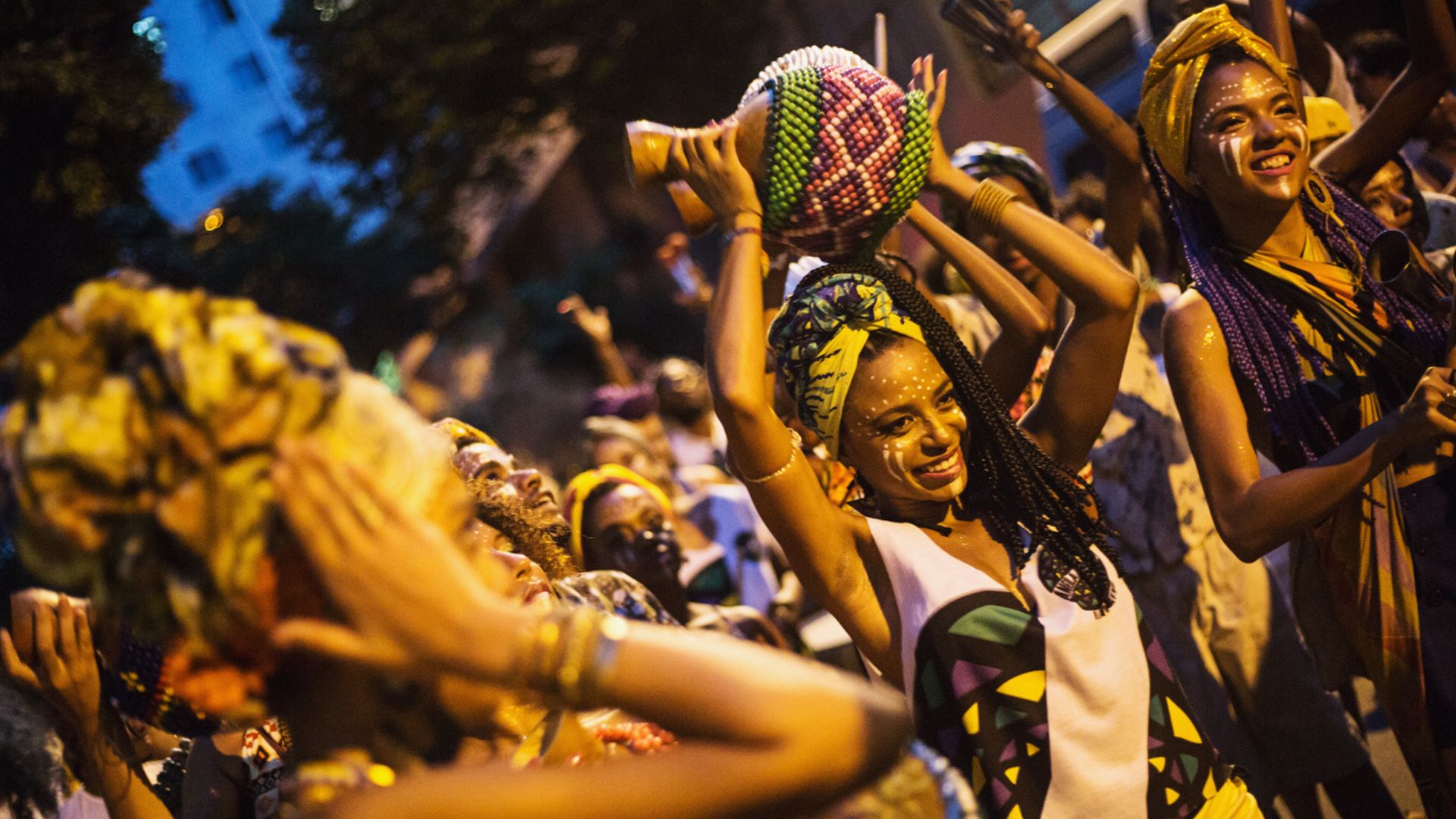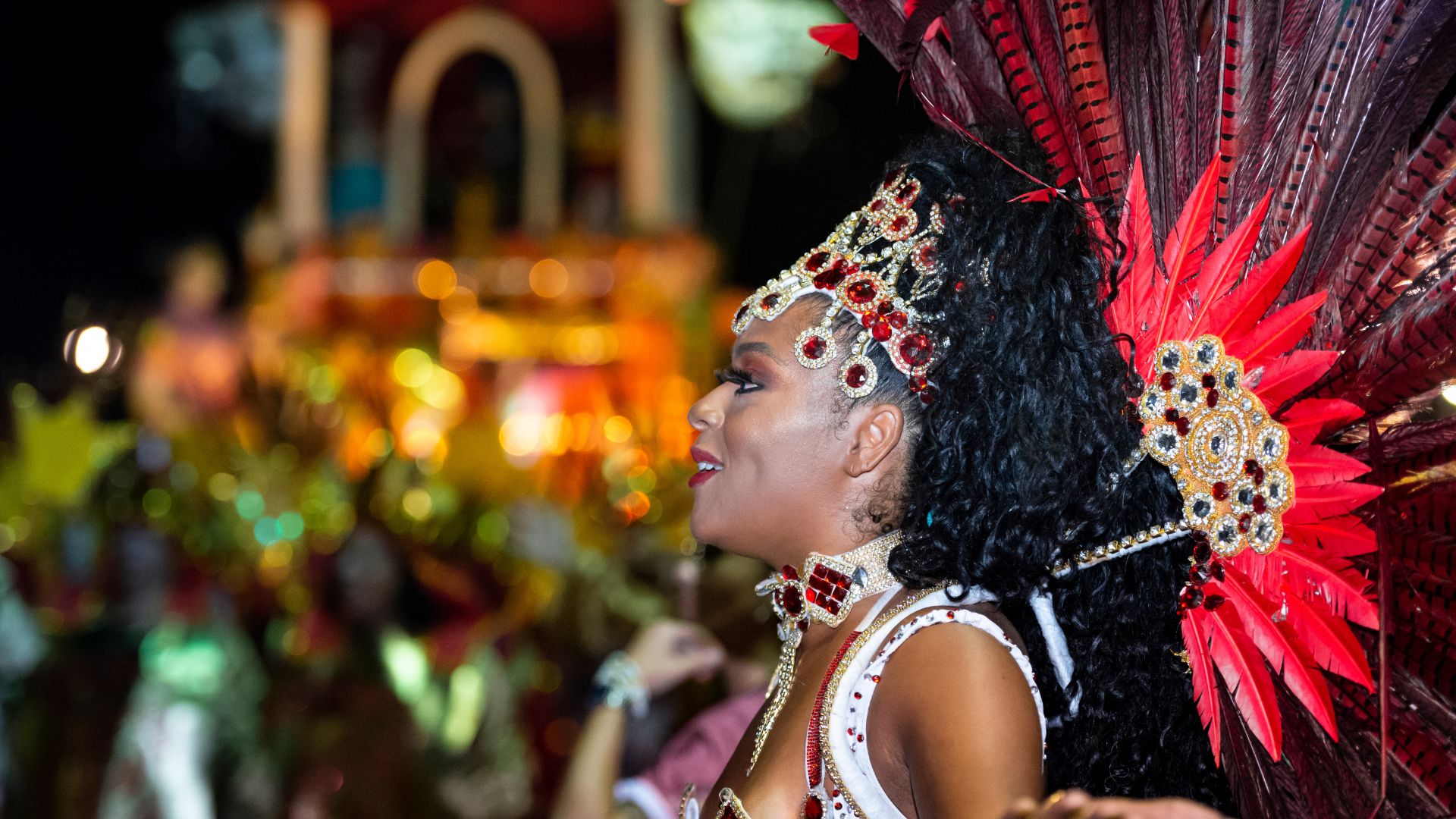- Your cart is empty
- Continue Shopping

The Influence of Afro-Brazilian Culture on Carnival in Rio
Without a doubt, Rio Carnival, one of the biggest world cultural festivities, is deeply rooted in the diversity and richness of Afro-Brazilian culture. Afro influence is undeniably an essential component that permeates every aspect of Carnival, from the music and dance to the costumes and rituals. In this article, we will explore the deep connection between Afro-Brazilian culture and the celebration of Carnival in Rio.

1 – Afro Origins at Carnival
The presence of African culture at Carnival dates back to colonial times, when slavery brought millions of Africans to Brazil. With the mixing of cultures during this period, African elements were incorporated into local traditions, and Carnival became a vibrant expression of this fusion.
2 – Afro Music
Rhythm is the soul of Carnival, and Afro-Brazilian music plays a central role in this aspect. Samba, a musical genre born in Afro-Brazilian communities, is the soundtrack par excellence of Carnival. Its infectious cadence and drumming derived from African rhythms underlie the pulsating energy that moves the parades and revelers.
3 – Samba and Samba-Enredo Schools
The samba schools, protagonists of the parade in Sapucaí, are true ambassadors of Afro-Brazilian culture. Many schools have their roots in Afro-Brazilian communities, and the plots often explore themes related to the history and contribution of black people to the formation of Brazilian identity. Samba-enredo, a specific category of these parades, often features lyrics that pay homage to historical figures and events relevant to Afro culture.
4 – Dance and Body Expression
Dancing at Carnival is a celebration of bodily expression and has strong influences from Afro-Brazilian traditions. The samba steps, the elaborate choreography and the sensuality that characterize the performances are reflections of Afro heritage, where dance is a form of spiritual connection and celebration of life.
5 – Clothing and Adornments
The clothing worn by participants in Carnival parades often incorporates elements of Afro-Brazilian culture. Feathers, beads, colored cloths and traditional accessories are an integral part of the costumes, representing symbols and styles originating from Afro traditions.
6 – Candomblé and Umbanda
The presence of Afro-Brazilian religions, such as Candomblé and Umbanda, is felt during Carnival. Some samba schools pay homage to African deities in their plots, and sacred rituals are often incorporated into the parades, creating a spiritual connection that goes beyond the festive aspect.
7 – Afro and Afoxés Blocks
In addition to samba schools, afro blocks and afoxés are important expressions of Afro-Brazilian culture during Carnival. Originating in Afro communities, these groups parade through the streets with engaging percussion, traditional dances and clothing that highlights Afro identity and pride.
8 – Carnival as Resistance and Affirmation
The strong presence of Afro-Brazilian culture at Carnival in Rio is not just an artistic expression; it is also an act of resistance and affirmation. In a country where African heritage has often been marginalized, Carnival becomes a platform to celebrate, preserve and promote the fundamental contributions of Afro-Brazilian culture to Brazilian society.
9 – Impact on National Identity
The influence of Afro-Brazilian culture on Carnival is an essential factor in the formation of national identity. This fusion of cultural elements creates an inclusive celebration that represents the diversity and richness of the Brazilian people. Carnival is, therefore, a symbolic expression of unity in diversity.
10 – Challenges and Opportunities
Despite the significant contribution of Afro-Brazilian culture to Carnival, there are still challenges to be faced. The fight against racism, the preservation of cultural traditions and the promotion of equality are issues that continue to be addressed by the Afro-Brazilian community during this festival.
11 – A Vibrant Tribute to Afro-Brazilian Culture
Carnival in Rio is, at its core, a celebration of Brazil's cultural diversity, and the influence of Afro-Brazilian culture is a fundamental part of this narrative. From drumming to samba steps, from allegories to sacred rituals, Afro heritage permeates every aspect of the festival, making Carnival an authentic and vibrant expression of Brazil's cultural richness. The celebration is a tribute to the resilience, creativity and spirituality of the Afro-Brazilian community, which continues to leave its indelible mark on the history and magic of Rio de Janeiro Carnival.

